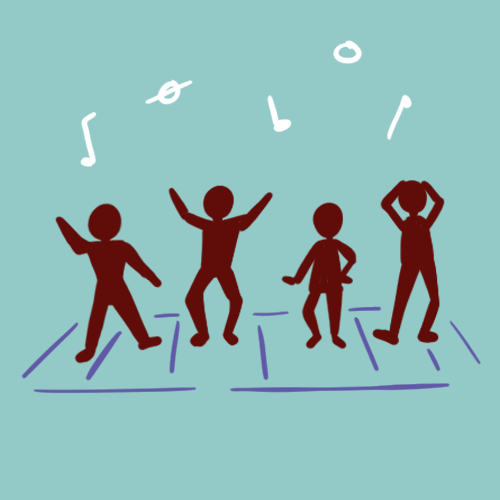Examining the cross-cultural significances of tunes
By RUMA POUDELL — arts@theaggie.org
Music transcends language. Every living thing has a rhythm, whether it’s a heartbeat or a certain stride in running. You can experience it through your senses — not just by hearing but by feeling, too; for example, the bass vibrations from a drum.
Whatever form it takes, you don’t need to learn music to understand it. The universal nature of music manifests across different cultures.
Recently, I made a friend through our love for the same instrument. I was playing the dhol during Punjabi Week’s kick-off event in the UC Davis Quad, and someone walked by, heard the sound, asked to play and busted out his own skills. Together, we improved our skills through collaboration. Despite our differences in nationality, gender and age, the act of playing an instrument brought us two strangers together.
Apart from being an encompassing means of connecting people, music serves many purposes. One of these is that rhythms, hymns and the utterance of specific words come together to form an integral part of spiritual practices.
Take, for example, Hindu bhajans and meditations, which place significance on music and its effect on the mind, body and spirit. One aspect of Hindu bhajans is the repetitiveness of verses, oftentimes in dedication to a deity. The idea is that through this repetition, devotees can merge with the divine presence in a meditative process. Combined with a science dedicated to the frequencies of different utterances, this aims to align spiritual seekers to a higher plane of consciousness and a more relaxed physiological state.
Practically all major religions use music to praise the essence of creation and elicit an uplifting sense of unity and reverence. Christianity has worship. Islam has nasheed. Buddhism has mantras and sutras. Sikhism has kirtan.
The cross-cultural significance of music can be boiled down to expression of experience and the passage of values. Music serves to carry heritage and a piece of history — whether it’s through religious and spiritual means or more modern forms of music.
Today, the burst in technology and the ability to connect with others easily via the internet has led to an era of musical diversity and increased access to said media.
Previously, music was shared through very physical means such as record vinyl, walkman players, CDs, cassettes and more. Now, we have apps like Spotify, Apple Music, Soundcloud, Youtube Premium and even Tiktok for discovering and enjoying songs.
As we increase our access to music, naturally, its significance in our lives increases too. There are many genres of music that you can connect and identify with. Whether it’s folk, salsa, punk rock, indie alternative, pop or country, music has the ability to decorate your time, connect you to similar shared experiences and immerse you into a subculture.
Written by: Ruma Poudell — arts@theaggie.org




